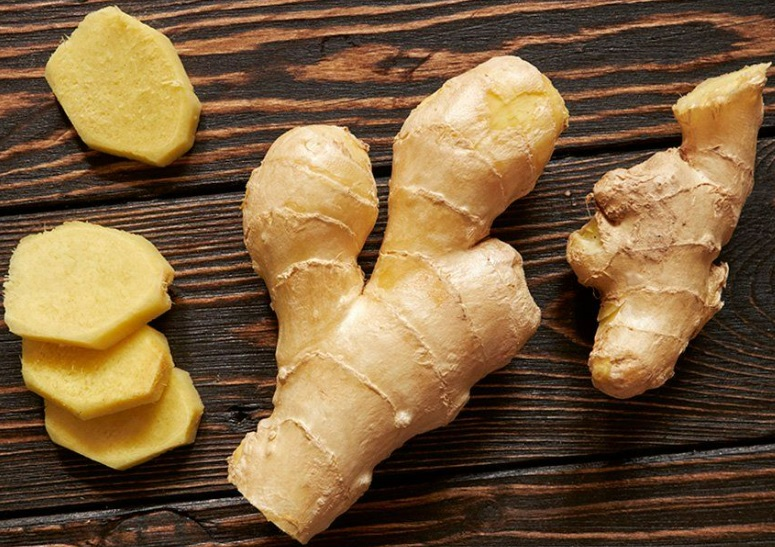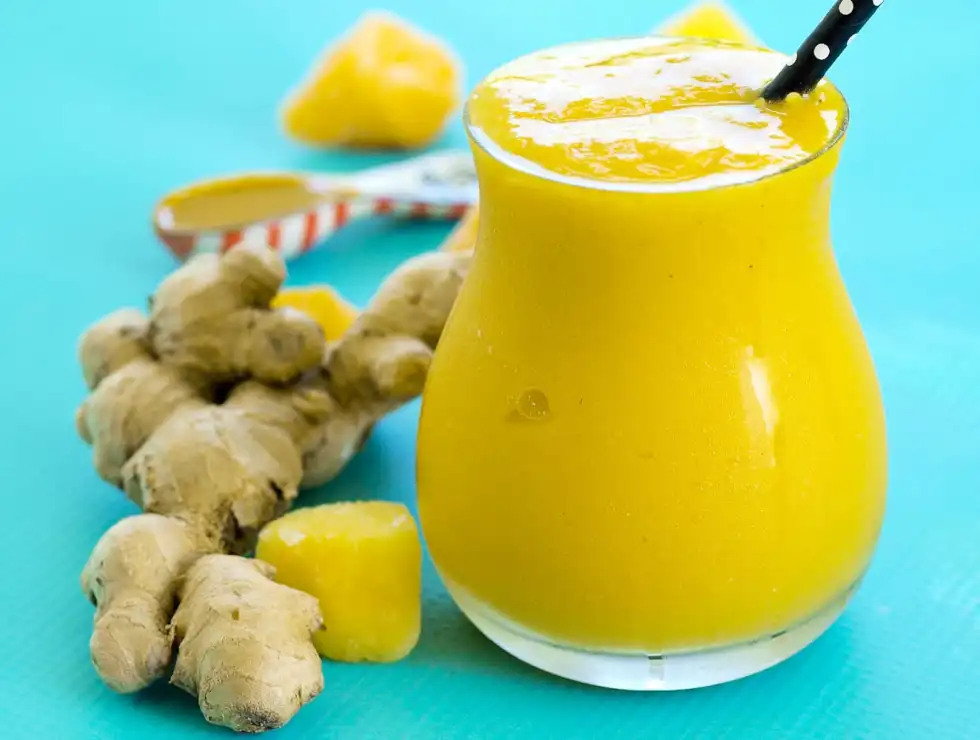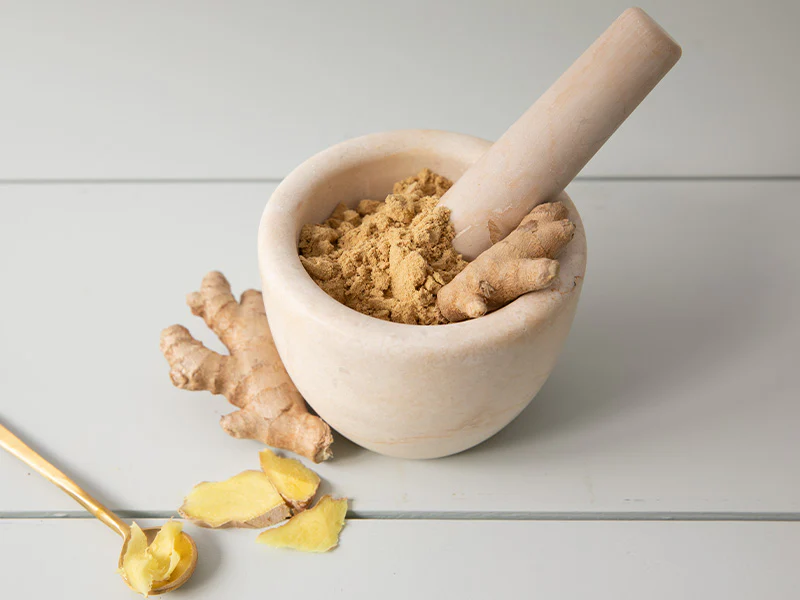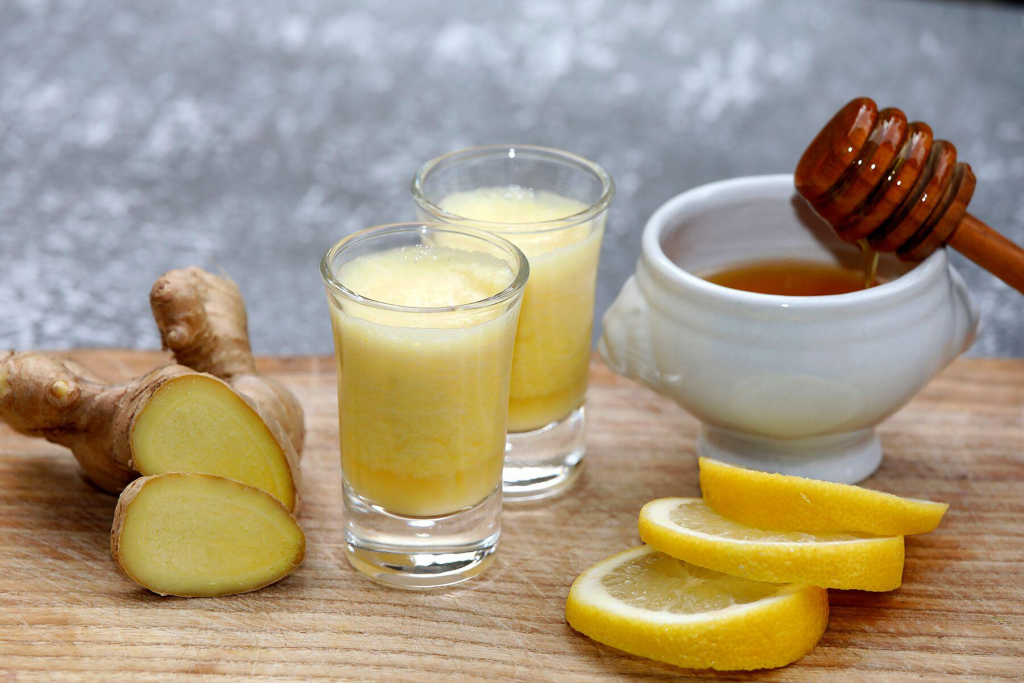Aging is a natural part of life, but how gracefully we age depends greatly on our lifestyle and diet. One surprising ally in this journey is ginger, a root that has been used for over 5,000 years in traditional medicine across Asia, Africa, and the Middle East. Modern science confirms what our ancestors already knew: ginger is a powerhouse of bioactive compounds like gingerol and shogaol that support digestion, circulation, immunity, and even joint health. According to recent studies, regular ginger consumption can reduce inflammation, improve memory, and even support heart health—all issues that become more critical as we grow older. The truth is simple: the older you get, the more ginger you should use. But how can you add it to your life in ways that are practical, enjoyable, and effective? In this article, you’ll discover 8 powerful ways to use ginger daily, backed by tradition, science, and real-life experiences.

Why Ginger Becomes More Important with Age
The Nutritional and Medicinal Profile of Ginger
- Gingerol: The primary active compound with anti-inflammatory and antioxidant effects.
- Shogaol and zingerone: Compounds that aid digestion and circulation.
- Minerals: Magnesium, potassium, and zinc that support heart and immune health.
- Natural warming effect: Improves circulation, especially helpful for aging joints and muscles.
Key Concerns of Aging That Ginger Supports
- Joint stiffness and arthritis
- Weaker immunity
- Slower digestion
- Memory and cognitive decline
- Higher risk of heart disease
This makes ginger not just a kitchen spice but a daily tonic for older adults.

8 Powerful Ways to Use Ginger
1. Ginger Tea for Daily Detox
A warm cup of ginger tea improves digestion, reduces bloating, and soothes the stomach. Brew slices of fresh ginger in hot water for 10 minutes, add lemon and honey for extra benefits.
2. Ginger and Honey Tonic for Immunity
Mix grated ginger with raw honey in a jar and take one teaspoon daily. This traditional remedy boosts immunity, eases sore throats, and reduces coughs.
3. Ginger in Meals for Heart Health
Incorporate fresh or powdered ginger into soups, stir-fries, and stews. Regular intake supports circulation and helps maintain healthy cholesterol levels.
4. Ginger Smoothies for Energy
Blend ginger with pineapple, spinach, and banana for a refreshing smoothie. This is especially useful for older adults needing a nutrient-dense energy boost.

5. Ginger Compress for Pain Relief
Crushed ginger boiled in water can be applied as a warm compress to ease joint stiffness and muscle pain. Widely used in Ayurvedic traditions, it’s a natural alternative to pain relievers.
6. Ginger Essential Oil for Relaxation
Dilute ginger oil with carrier oil and massage onto sore muscles. Aromatherapy with ginger oil also improves focus and reduces stress.
7. Ginger and Lemon Water for Weight and Metabolism
Drinking ginger-infused lemon water in the morning supports metabolism, aids weight management, and provides an antioxidant-rich start to the day.
8. Ginger Supplements for Consistency
For those who find it hard to consume ginger daily, supplements in capsule form can provide standardized doses of gingerol. Always consult a doctor before starting supplements.

| Use Case | How It Helps | Best Time to Use |
|---|---|---|
| Ginger tea | Improves digestion | Morning or evening |
| Honey tonic | Boosts immunity | Daily, anytime |
| In meals | Supports heart health | With lunch/dinner |
| Smoothies | Energy and nutrients | Morning |
| Warm compress | Relieves joint pain | As needed |
| Essential oil | Reduces stress, relaxes | Evening |
| Lemon water | Aids metabolism | Morning |
| Supplements | Consistent ginger intake | Daily, with food |
Real-Life Experiences

Case 1: The Retired Teacher
Angela, 68, struggled with arthritis in her knees. After adding ginger tea and compresses to her routine, she experienced less stiffness and better mobility.
Case 2: The Busy Professional
Mark, 55, added ginger smoothies to his mornings. He noticed improved energy and reduced afternoon fatigue within a few weeks.
Case 3: The Family Tradition
In many Asian households, grandmothers keep ginger-honey tonic ready in the kitchen. Whenever someone catches a cold, a spoonful is the first line of defense.
Tips for Getting the Most from Ginger
- Always choose fresh ginger root over dried for maximum potency.
- Start small—about 1–2 grams per day—and increase gradually.
- Store ginger in the freezer to make it last longer.
- Pair ginger with turmeric or cinnamon for enhanced benefits.
- Stay consistent—regular use shows the best results over time.

Safety and Precautions
- Ginger is generally safe in culinary amounts.
- High doses may cause heartburn or interact with blood-thinning medications.
- Pregnant women should consult a doctor before using large amounts.
- Avoid exceeding recommended supplement doses.
Conclusion
The older you get, the more essential it becomes to use ginger in your daily life. From protecting your heart and easing joint pain to boosting immunity and improving digestion, this humble root is a powerhouse of wellness. With eight practical ways to incorporate it into your routine, ginger can help you age with strength, energy, and vitality.
FAQs in brief
- Can ginger cure arthritis or heart disease? No, but it may ease symptoms and support prevention.
- How much ginger should I consume daily? 2–4 grams fresh ginger is considered safe for most adults.
- Is ginger tea safe for daily use? Yes, one to two cups per day is safe.
- Can I use ginger supplements instead of fresh ginger? Yes, but consult a healthcare provider first.
Disclaimer: This article is for informational purposes only and is not a substitute for medical advice. Always consult your healthcare provider before using herbs as remedies, especially if you have health conditions or take medication.




